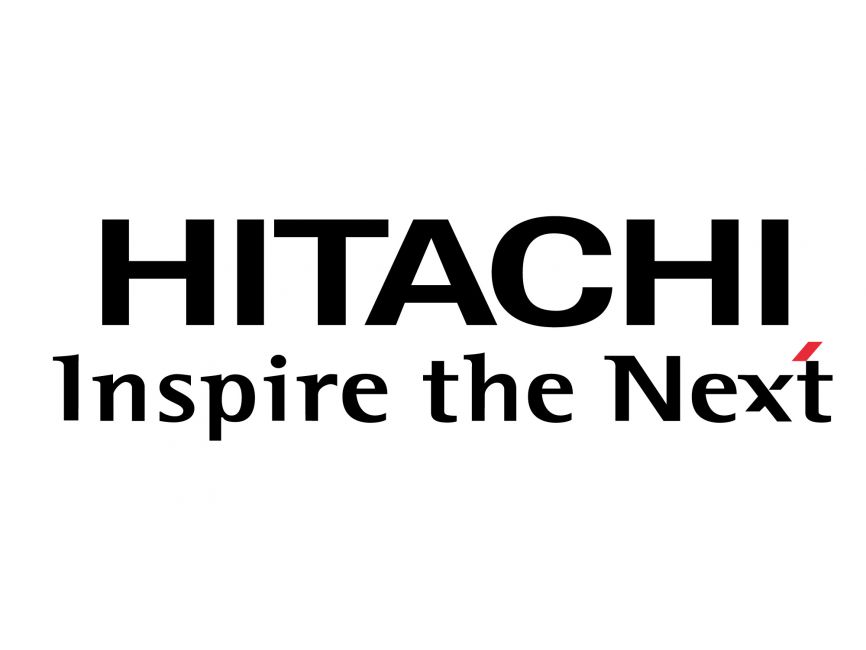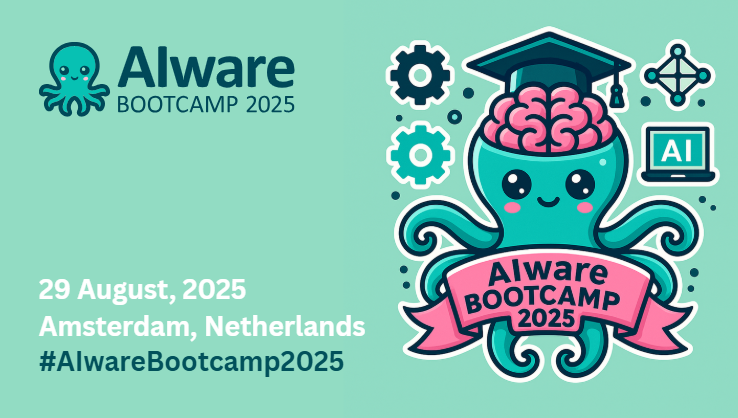About the AIware Bootcamp - Europe
The AIware Bootcamp - Europe, builds on the success of the inaugural AIware Leadership Bootcamp held in Toronto and AIware Bootcamp - Mini, a condensed two-day version, co-located with ICSE 2025. AIware Bootcamp Europe is a A high-impact one-day bootcamp at Open Source Summit Europe focused on engineering AI-powered software (AIware) and integrating it into open-source ecosystems. Go beyond demos and explore how to build and ship real products powered by Foundation Models (FMs) like ChatGPT, Claude, and Llama. Learn how these models are enabling a new wave of applications (FMware) that demand fresh approaches to software engineering – including agentic design, advanced observability, and compliance. Tailored for open-source developers, engineers, researchers, and tech leaders building or stewarding production-ready AI-driven systems.
“Software for all and by all” is the future of humanity. AIware, i.e., AI-powered software, has the potential to democratize software creation. We must reimagine software and software engineering (SE), enabling individuals of all backgrounds to participate in its creation with higher reliability and quality. Over the past decade, software has evolved from human-driven Codeware to the first generation of AIware, known as Neuralware, developed by AI experts. Foundation Models (FMs, including Large Language Models or LLMs), like GPT, ushered in software's next generation, Promptware, led by domain and prompt experts. However, this merely scratches the surface of the future of software. We are already witnessing the emergence of the next generation of software, Agentware, in which humans and intelligent agents jointly lead the creation of software. With the advent of brain-like World Models and brain-computer interfaces, we anticipate the arrival of Mindware, representing another generation of software. Agentware and Mindware promise greater autonomy and widespread accessibility, with non-expert individuals, known as Software Makers, offering oversight to autonomous agents.
To register for the event, please follow this link. The event will be held on 29th August, 2025 at the RAI Amsterdam Convention Centre. Spaces are limited, so early registration is encouraged to secure your spot.
Curriculum Committee
The AIware Leadership Bootcamp features a curriculum shaped by feedback and expertise from leaders from the following organizations. This Mini edition presents a streamlined version of the original program, carefully adapted to fit a shorter format while preserving the core aspects needed to provide a comprehensive introduction to the AIware domain.
Bram Adams, Queen's University, Canada Eddie Aftandilian, GitHub, USA Boyuan Chen, Centre for Software Excellence, Huawei, Canada Satish Chandra, Google, USA Filipe R. Cogo, Centre for Software Excellence, Huawei, Canada Prem Devanbu, University of California Davis, USA Danny Dig, University of Colorado Boulder and JetBrains Research, USA Ke Ding, Intel, USA Keheliya Gallaba, Centre for Software Excellence, Huawei, Canada Ahmed E. Hassan, Queen's University, Canada Zhenming (Jack) Jiang, York University, Canada Yoshimura Kentaro, Hitachi, Japan Foutse Khomh, Polytechnique Montréal, Canada Jiahuei (Justina) Lin, Centre for Software Excellence, Huawei, Canada Dayi Lin, Centre for Software Excellence, Huawei, Canada Yiling Lou, Fudan University, China Qinghua Lu, CSIRO, Australia Orlando Marquez, Servicenow, USA Gustavo Oliva, Centre for Software Excellence, Huawei, Canada Ipek Ozkaya, Software Engineering Institute, Carnegie Mellon University, USA Gopi Krishnan Rajbahadur, Queen's University, Canada Baishakhi Ray, Columbia University, AWS, USA Ben Rombaut, Centre for Software Excellence, Huawei, Canada Tom Zimmermann, Microsoft, USA Haoxiang Zhang, Centre for Software Excellence, Huawei, Canada Lingming Zhang, University of Illinois Urbana-Champaign, USA



















Schedule
A single packed day of deep dives, demos, and panels.
Opening of the Bootcamp
Organizers: Gopi Krishnan Rajbahadur, Ahmed E. Hassan, Maliheh Izadi
From Copilots to Agentic SE Teammates: Engineering the SE 3.0 Era with AI-Native Workflows
Ahmed E. Hassan
Session Outline:
- What is SE 3.0? – A new paradigm of Agentic Software Engineering where autonomous, goal-oriented AI collaborators evolve from passive copilots to proactive teammates.
- Why SE 2.0 Isn’t Enough – Limitations of current FM-powered copilots: developer overload, fragmented workflows, and lack of agentic behavior and trust.
- The SE 3.0 Agentic Stack:
- Teammate.next – Adaptive, personalized agentic partners capable of shared goals and proactive decision-making.
- IDE.next – Intent-first, conversation-driven development environments designed for agent collaboration.
- Compiler.next – Multi-objective code generation powered by agents optimizing for quality, performance, and compliance.
- Runtime.next – SLA-aware, distributed execution environments orchestrating both human and agent workflows.
- Introducing AIDev – The first large-scale dataset capturing AI-agent-generated pull requests across 61K+ repositories.
- What AIDev Reveals – Agentic contributions at scale and speed—yet facing acceptance, coordination, and complexity gaps.
- Beyond Benchmarks – Why real-world agentic data (AIDev) exposes gaps that synthetic benchmarks like SWE-bench miss.
- Research & Engineering Opportunities – Benchmarking agent trust, modeling collaboration, and embedding governance into Agentic SE workflows.
- Call to Action – Building metrics, tooling, and safeguards to fully realize Agentic SE 3.0 in practice.
Building High-Quality & Trustworthy FMware
Dayi Lin
Session Outline:
- Overview of AIware
- Introduction to the trustworthiness of software and AI
- How do you select the right model?
- How to benchmark a model?
- How to write a good prompt?
- How to prevent hallucination?
- How to debug prompts?
- How to prevent getting or causing harm – Guardrails
- How to ensure compliance in dataflow?
- How to conduct quality evaluation?
- How to interact with the users?
- How to operationalize the application?
Morning Break
Practical Evaluation of LLMs for Code
Maliheh Izadi
Session Outline:
- Practical application of open-weight large language models for code generation
- Evaluation of model performance in live software development environments
- Analysis of failed cases and insights from these failures
- Overview of AI4SE benchmarking approaches
- Discussion of existing challenges in AI for software engineering
Beyond Vibe Coding: Leveraging Foundation Models to Infer Intent
Keheliya Gallaba
Session Outline:
- Why Requirements Engineering is the Bottleneck – Aligning software with true user needs starts with understanding intent.
- From Vibe Coding to Real Engineering – Critiquing the throwaway culture of prompting and patching.
- What Are Intents (Really)? – Distinguishing goals, requirements, and the hidden rationale that underpins them.
- Inferring Intents with Foundation Models – Using Theory of Mind (ToM), iterative refinement, and dialog context to bridge ambiguity.
- Conversational Interfaces for Requirement Elicitation – Proactively clarify requirements, resolve contradictions, and avoid premature solutions.
- Evaluating Intent Quality – Rubrics for accuracy, relevance, completeness, realizability, and collaboration support.
- Real-World Gains Over Baselines – Evidence that FM-inferred requirements deliver better grounding and satisfaction.
- Known Challenges – Tackling sycophancy, hallucination, and compute cost.
- What’s Next for Requirements Engineering – Reasoning-augmented models, multi-modal inputs, and non-chat interfaces.
- Call to Action – Foundation Models shouldn’t just write code—they must understand why the code exists.
Lunch Break
Lunch not provided: participants are encouraged to explore the local cuisine.
From Chaos to Compliance: Engineering Legal Assurance in the FMware Era
Gopi Krishnan Rajbahadur
Session Outline:
- The Legal Risk Landscape for FMware – Unpack rising lawsuits in AI-powered software.
- Why Traditional Compliance Doesn’t Scale – Gaps in software engineering, OSPO practices, and legal frameworks.
- The Dataset License Dilemma – Ambiguity in public dataset licenses poses real risks.
- Introducing LicenseGPT – A fine-tuned FM on 500 expert-annotated licenses for automated compliance.
- Human-in-the-Loop Legal AI – IP lawyers using LicenseGPT as an accelerator, not a replacement.
- From Licensing to Traceability – Emergence of AIBOM and FMwareBOM for provenance tracking.
- Compliance as Engineering Practice – Embedding legal assurance into SE pipelines.
- The Role of Standards and Open Source – OSPOs, SPDX, and the open source community leading compliance innovation.
- Call to Action – Treat legal risk in FMware as a core engineering discipline.
Visual Quality Assurance Using Vision-Language Models
Cor-Paul Bezemer
Session Outline:
- Why Visual QA Matters – Ensuring user trust and correctness in dynamic, visual interfaces.
- Limits of Manual and Snapshot Testing – Current methods are brittle and labor-intensive.
- Non-Determinism in Modern Software – AI-driven behavior makes pixel-perfect matching unreliable.
- When Bugs Aren’t Bugs – Why visual differences don’t always indicate regressions.
- The Commonsense Gap – Many visual issues require human-like reasoning.
- Vision-Language Models for Visual QA – Using multimodal models to understand and evaluate visual intent.
- Detecting Subtle Visual Failures – Identifying layout, style, and semantic inconsistencies.
- Natural Language Explanations – Producing interpretable reports for visual issues.
- Challenges and Open Questions – Hallucinations, evaluation criteria, and integration hurdles.
- Toward Smarter Testing Pipelines – Embedding VLMs into scalable, automated QA workflows.
Afternoon Break
From Issues to Commits: Autonomous Agents for Smarter Software Traceability
Mehdi Keshani
Session Outline:
- What is issue-to-commit link recovery, and why does it matter?
- What makes it challenging in real-world projects?
- Where do existing AI/LLM methods fall short?
- How does an agentic approach solve these challenges?
- How well does it perform against state-of-the-art?
- Key lessons from agentic issue-to-commit link recovery.
Panel: Agentic SE & Open Source in the FMware Era – Toward Trustworthy, Context-Aware FMware
Cor-Paul Bezemer, Day Lini, Keheliya Gallaba, Maliheh Izadi, Gopi Krishnan Rajbahadur
Moderator: Mehdi Keshani
Group Picture & Closing of the Bootcamp
Organizers: Gopi Krishnan Rajbahadur, Ahmed E. Hassan, Maliheh Izadi
Venue
RAI Amsterdam Convention Centre
RAI Amsterdam Convention Centre
Europaplein 24, 1078 GZ Amsterdam, Netherlands
Located in the heart of Amsterdam, easily accessible via public transit and a short tram ride from the city centre.
Sponsors
We sincerely thank our sponsors for their invaluable support.
For sponsorship inquiries, please get in touch with us.





Registration
Reserve your spot today—space is limited!
OSS Europe/AI_dev Europe Attendees
Complimentary with your AI_dev or OSS EU registration.
Add to OSS EU/AI_dev RegistrationNon-Attendees
Separate €10 ticket for AIware Bootcamp 2025.
Buy Non-Attendee TicketAccommodations & Travel
Looking for a place to stay? See the Hotel Information for recommended hotels and rates.
Visa Requests
If you need a visa invitation letter, please submit your request via the Visa Request page.
 AIware Bootcamp - Europe 2025
AIware Bootcamp - Europe 2025